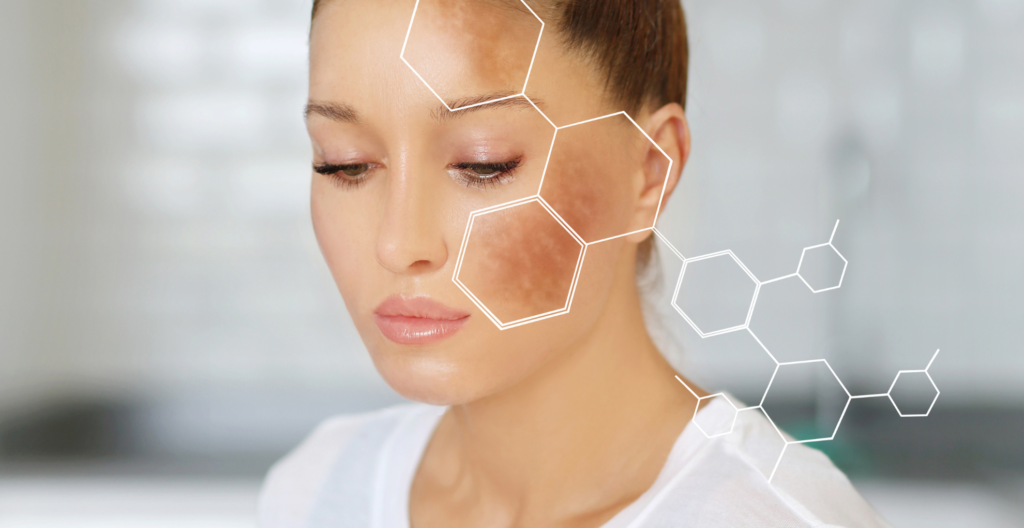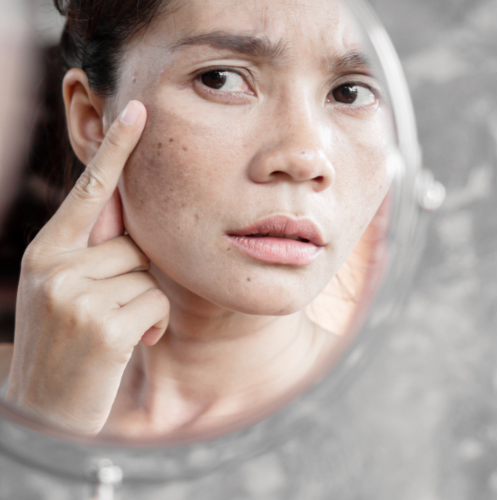
Introduction
Do you notice dark spots on your face and wonder if they’ll ever fade? You’re not alone! Hyperpigmentation is a common skin concern for many people. But don’t worry, there are multiple ways to treat these pesky patches right from home. This article explores simple yet effective home treatments that can help lighten hyperpigmentation and give your skin a more even appearance.
Hyperpigmentation isn’t just about those noticeable spots. It stems from the excess production of melanin, which gives our skin its color. Factors contributing to hyperpigmentation include extensive sun exposure, hormonal changes like pregnancy, and skin injuries from acne or wounds.
- Types of Hyperpigmentation:
- Melasma: Often hormonal, appearing as large brown patches usually on the face.
- Sunspots: Typically caused by sun exposure, appearing on areas most exposed to the sun.
- Post-Inflammatory Hyperpigmentation: These are dark spots that appear after an acne breakout or skin injury heals.
The severity and treatment response can vary based on skin type and color, making understanding your skin crucial in choosing the right treatments.
Preventing hyperpigmentation is just as crucial as treating it. Protecting your skin can prevent further dark spots and keep existing ones from getting darker.
- Sun Protection: Shield your skin with broad-spectrum SPF, wear hats, and opt for long-sleeved clothing to protect your skin from UV rays.
- Skin Care Routines: Gentle cleansing and regular moisturizing help maintain your skin’s barrier, reducing the risk of skin injuries that can lead to hyperpigmentation.
- Diet and Hydration: A balanced diet rich in antioxidants and staying hydrated can help your skin heal and rejuvenate more efficiently.
Nature offers some fantastic ingredients to help lighten dark spots safely:
- Natural Lightening Agents: Lemon juice is rich in vitamin C, cucumber soothes the skin, and potato slices contain catecholase which helps lighten skin tone.
- Homemade Masks and Pastes: Create a paste with turmeric, honey, and aloe vera. These have properties that reduce pigmentation and nourish the skin.
- Essential Oils: Tea tree oil, rosehip oil, and frankincense oil can decrease the appearance of dark spots when used carefully and diluted with a carrier oil.

If natural remedies aren’t cutting it, there are over-the-counter options that can also be effective.
- Topical Treatments: Vitamin C serums, retinoids, and niacinamide are powerful ingredients known to reduce discoloration.
- Chemical Peels at Home: Products containing glycolic acid or salicylic acid can be used for mild peeling at home to remove dead skin cells and lighten dark spots.
- Skin Brightening Creams: Choose creams specifically formulated for reducing pigmentation. Always check the ingredient list to avoid harmful compounds.
For those looking for stronger at-home treatments, consider the following:
- Microneedling: Using a dermaroller can stimulate collagen production and help fade hyperpigmentation.
- LED Light Therapy: Different lights (like red and blue) offer various benefits, including reducing pigmentation.
- Safe Skin Bleaching: Some over-the-counter products are safe if used properly. Always read labels and follow recommendations closely.
Seeing real-life examples can provide the confidence to try these treatments yourself.
- Before and After: Many users have reported success with combinations of the above treatments, showing significant improvement in their hyperpigmentation.
- Product Reviews: Look for products with positive consumer feedback for dealing with hyperpigmentation. Check verified reviews for the best results.
- Personal Stories: It’s always uplifting to hear about others who’ve managed to reclaim their clear skin through similar struggles.
In your journey to combat hyperpigmentation, remember that consistency is key, and patience is crucial. Each skin type is different, and results can vary. Therefore, take your time to understand what works best for your skin. With the right approach, you’re well on your way to achieving that even-toned glow!
FAQ
- How long does it take to see results from home treatments?
- Results can vary, but many see improvements within a few weeks to months.
- Are home remedies safe for all skin types?
- Generally, yes, but always test a small area first and observe for any adverse reactions.
- What should I do if my skin reacts badly to a home treatment?
- Discontinue use immediately and consult a dermatologist if necessary. Always prioritize safety in your skincare.
